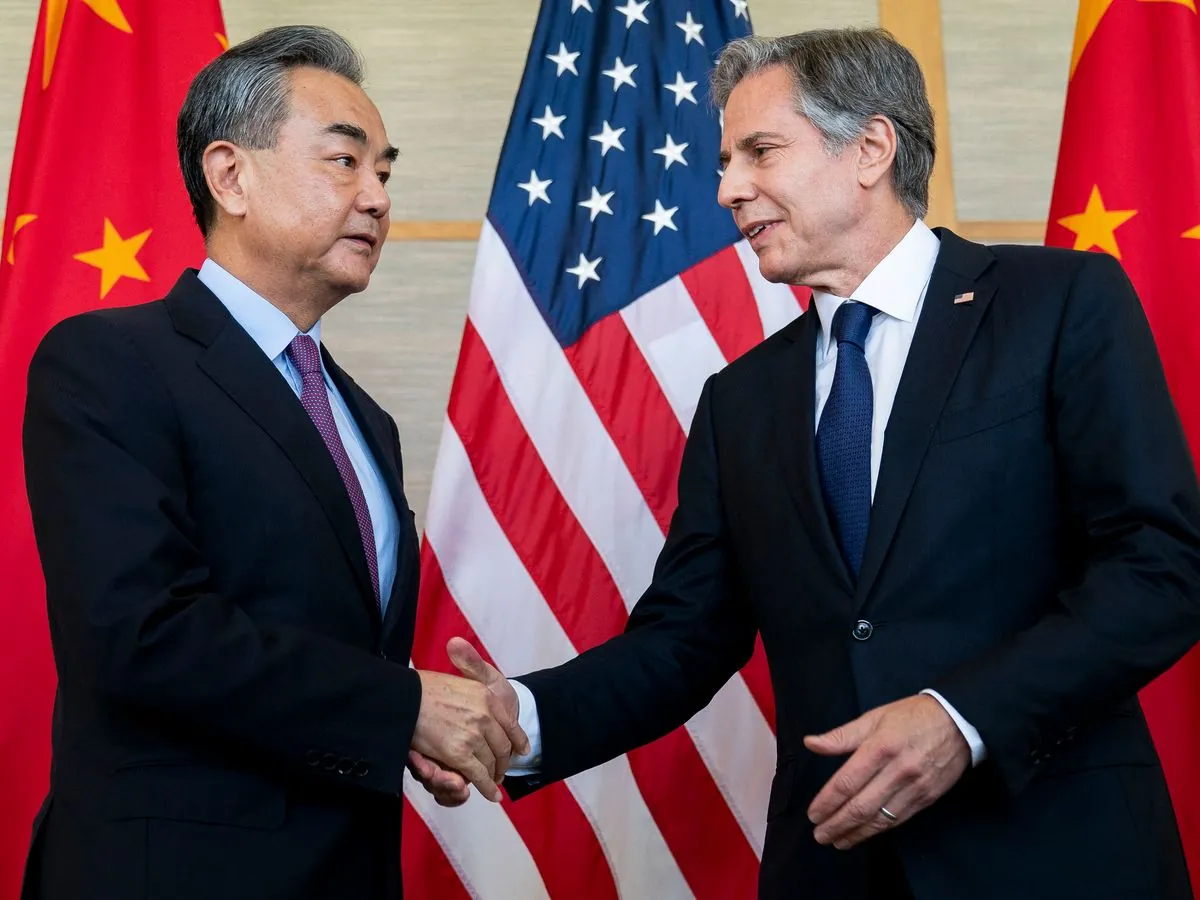In a significant diplomatic engagement, Antony Blinken, the US Secretary of State, is scheduled to meet with Wang Yi, China's Foreign Minister, on September 29, 2024, in New York City. The meeting, set for 13:30 ET, coincides with the ongoing United Nations General Assembly session, marking a crucial moment in US-China relations.
This high-level dialogue occurs against a backdrop of complex bilateral issues. The world's two largest economies continue to navigate challenges in various domains, including advanced technology exports, trade policies, and geopolitical concerns. The US has implemented restrictions on chip technology exports to China, while Beijing has urged Washington to eliminate additional tariffs on Chinese goods.
The relationship between the United States and China has evolved significantly since the establishment of diplomatic ties in 1979. Over the past four and a half decades, the two nations have experienced periods of cooperation and conflict. The current state of affairs reflects a more competitive dynamic, with some analysts drawing parallels to a new form of Cold War, albeit distinct from the US-Soviet tensions that lasted from 1947 to 1991.
Geopolitical issues remain at the forefront of discussions. The US has expressed concerns about China's relationship with Russia, particularly in light of Moscow's invasion of Ukraine over two and a half years ago. Conversely, Beijing has consistently voiced apprehension regarding US ties with Taiwan, which has been self-governing since 1949. The US maintains a delicate balance, serving as Taiwan's primary international supporter and arms supplier while adhering to the One China policy established in 1979.
The complexity of US-China relations extends beyond bilateral issues. Both nations are key players in global affairs, holding permanent seats on the UN Security Council and ranking as the top two carbon emitters worldwide. Their cooperation on issues such as climate change, exemplified by their joint signing of the Paris Agreement in 2016, underscores the potential for collaborative efforts despite ongoing tensions.
Kurt Campbell, the US Deputy Secretary of State, recently emphasized the unprecedented nature of the challenges posed by China, surpassing those of the Cold War era. This assessment reflects the multifaceted nature of contemporary US-China competition, encompassing economic, technological, and strategic dimensions.
Despite these challenges, both sides have maintained open channels of communication. In August 2024, the White House announced plans for a call between President Joe Biden and Chinese President Xi Jinping, demonstrating ongoing efforts to manage the relationship at the highest levels.
As Blinken and Wang Yi prepare to meet, the international community watches closely. The outcome of their discussions could provide insights into the future trajectory of US-China relations and its implications for global stability and cooperation.
"A call is being planned between President Xi Jinping and President Biden soon."
This upcoming meeting between Blinken and Wang Yi represents another chapter in the long history of US-China diplomacy, which dates back to the first diplomatic cable sent in 1844. As both nations navigate their roles in an increasingly interconnected world, the ability to engage in constructive dialogue remains crucial for addressing shared challenges and mitigating potential conflicts.
